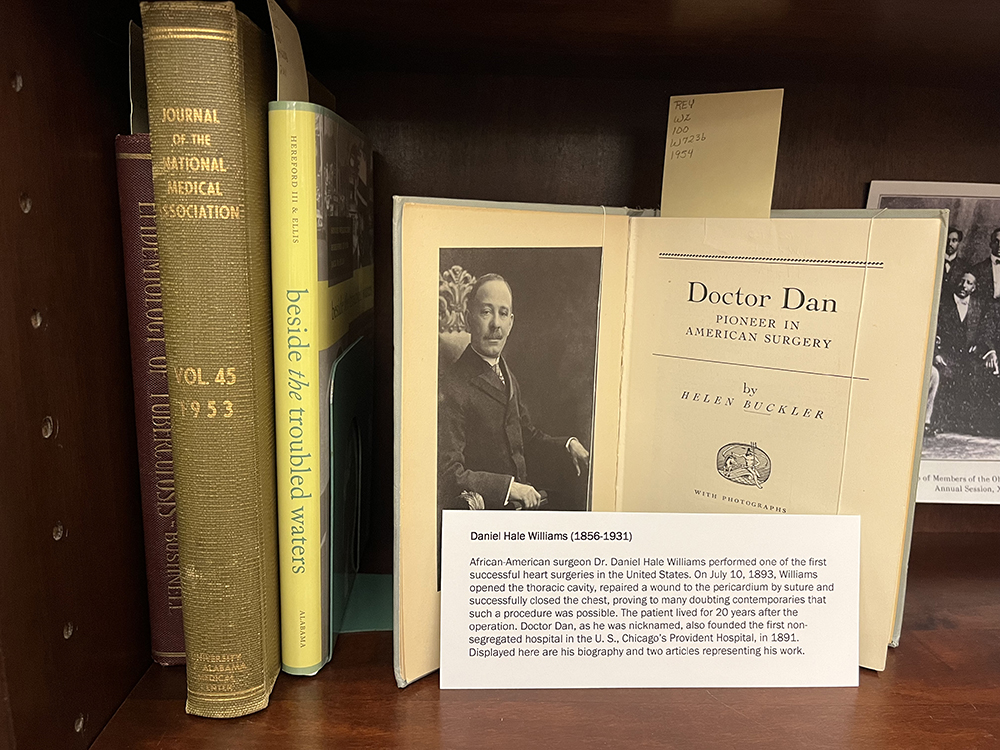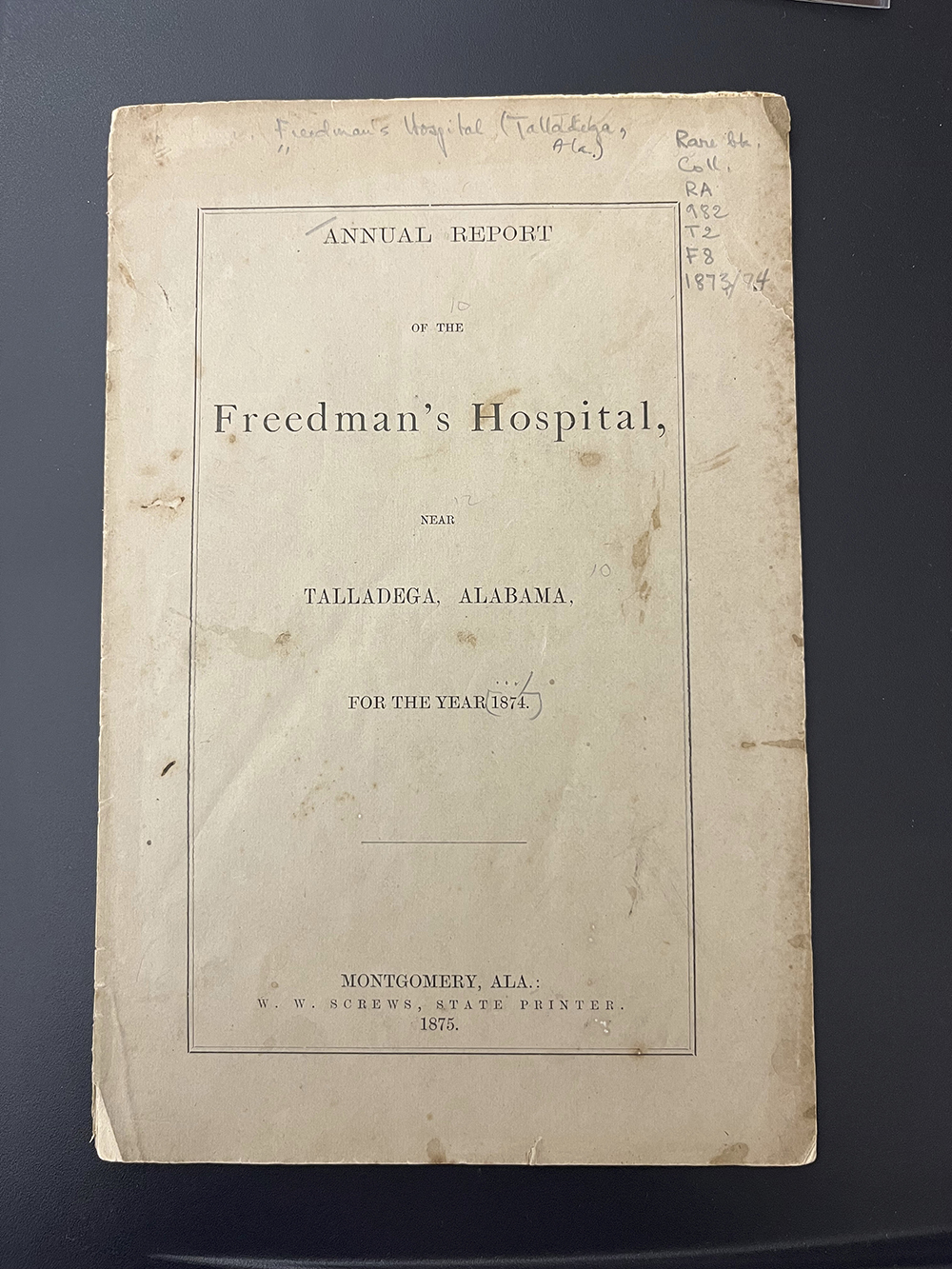UAB Libraries’ Reynolds-Finley Historical Library is home to the African American Medical Collection, a physical compendium of historical objects that celebrates pioneering efforts by Black physicians, nurses and other health care professionals.
A selection of items currently is on display in the Reynolds-Finley reading room on the third floor of Lister Hill Library; email pbalch@uab.edu to make an appointment to view.

“Let there be life: the contemporary account of Edna L. Griffin, M. D.,” published in 1947 by Helen Kitchen Branson, is a biography of the first Black female physician of Pasadena, California.

“My world of reality: an autobiography of Hildrus A. Poindexter, M.D., Ph.D., M.S.P.H., Sc.D.,” is a 1973 autobiography penned by Poindexter, who was born in 1901 in western Tennessee and later became chief of Bacteriology, Preventive Medicine and Public Health at Howard University and chief of American Foreign Aid Health Missions to Liberia, Libya, Suriname, Iraq, Sierra Leone and Indochina.

The biography “Doctor Dan: Pioneer in American surgery” by Helen Buckler chronicles the life and experiences of Black surgeon Daniel Hale Williams, M.D., who performed one of the first successful heart surgeries in the United States when, in July 1893, he opened the thoracic cavity to repair a wound to the pericardium by suture before successfully closing the chest; the patient lived for 20 years following the operation. Nicknamed “Doctor Dan,” Williams also founded the first non-segregated hospital in the U.S., Chicago’s Provident Hospital, in 1891. Two articles about Williams also are on display.

Two ledger books kept by Black physician and activist William Worthy detail a busy urban obstetrics practice in early 20th-century Roxbury, a neighborhood of Boston. Worthy’s son, William Worthy Jr., became a well-known civil rights activist.

This copy of the 1874 annual report for Freedman’s Hospital, located near Talladega, Alabama, contains handwritten annotations.
